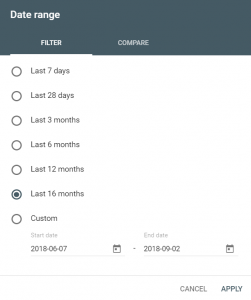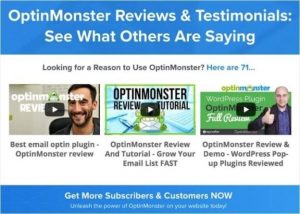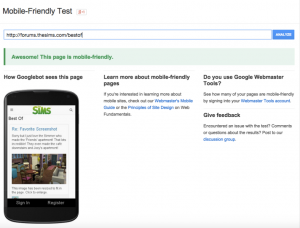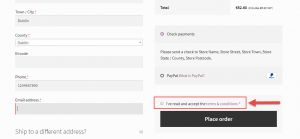Talented sales professionals must wear many hats. Some times they must be the hardball negotiator, and at other times the trusted friend, and all the different roles in between. Each of these different approaches to the sales game are equally valid depending on the customer and the industry.
Sales reps who take the counselor role are pursuing the route of consultative sales. This concept has been growing in popularity over recent decades, and many professionals have added “adviser” to their list of roles. Dan Newman recently wrote about 4 trends dominat5ing customer engagement, centered around the theme of consultative sales. Today’s reps might be well served to work a little bit of psychology into their strategy to best serve today’s changing customer base. Here’s what you need to know about when consultative sales works and why.
Why Be A Consultant
Taking the adviser approach requires that the sales professional establish real trust with the customer. This softer approach may not get to the meat of the sale until the very end of the relationship. The early stages involve getting acquainted with the customer as a peer. You learn about them as more than just a client. You get the full, detailed picture of what problem they face, and only once a good rapport is established do you start presenting solutions.
Despite the unusual sequence of steps, the consultative approach can still yield a shorter sales process that generates more results. You’ll only cover solutions that will be a good match for the customer, so it doesn’t take long to allay any concerns, make any final adjustments, and sign on the dotted line.
Mark Roberge, VP of Sales at Hubspot offers a great lesson in consultative sales.
“Last year I closed a deal with a Fortune 500 company here locally. The VP of Sales sent me an e-mail and said, “Mark, I need to go to lunch you and my VP of Marketing. We need some help.” And I said, “Great, I’ll be in your office tomorrow.” He said, “Nope, we’ll come to you, don’t worry.” So I said, “Great, pick my favorite lunch place.” I headed over and they spilled to me their whole problem set. Their visitors, leads, trials, conversion rates, where they thought they were off from the industry benchmark, etc. We spent 90 minutes and I shared everything I knew about it –and how we could help solve their problems. We just scribbled it out, worked through the whole process. When the check came, I reached for my wallet and they said: “Thank you very much, this was fantastic, we’ve got this.”
While the deal took 60 days to get the through procurement, it was a huge deal. And they reached out to Mark because he’s a thought leader in the marketing automation space and provides a consultative approach. They trusted him right from the get go. They wanted his input and they wanted to do business as a result.
When Does It Work?
It’s important to note that consultative sales isn’t a perfect match for every situation. To succeed, the audience needs to lend itself to the method. Your potential customers need to be compelled to do some investigation on their own before seeking you out. This often ties in with expense, because people are more likely to research their pricey purchases. Even if the price is not necessarily high, the importance of the purchase probably is.
A great example of this is the medical field. The advent of tools such as WebMD made it easier for patients to learn about different conditions, while online searching lets them investigate treatment options before ever going into a doctor’s office. Plus, drug and device companies can advertise their products on television and in print. All of this means that today’s patients have a huge amount of information at their fingertips, but that doesn’t necessarily mean they have the knowledge to make smart decisions.
That means the doctor’s role has changed in a crucial way. A physician needs to focus the disparate factoids that a patient knows and combine them with the best course of treatment. Especially since the patient doesn’t have the skills to accurately diagnose themselves, he or she might be completely off base with what they think is wrong or what they think is a good therapy.
A more traditional sales-based example is the industry for computers and mobile devices. Since people have such personal and unique relationships with their gadgets, they tend to know some of the key characteristics they want before going in to make the purchase. One customer might want to buy a laptop for playing video games, so they’ll be prioritizing power and graphics, while a customer who wants a computer for occasional web browsing and emailing friends is going to be focused on the price rather than bells and whistles.
Know the Knowledgeable Consumer
One important step in adopting this consultant-style role is understanding the type of information that your customers are able to find. Know what the top blogs, magazines, or talk shows are that cover your beat. Keep tabs on what those sources are saying, because it’s a near-certainty that anybody who comes to you will have researched what they say. If you can stay on top of the popular knowledge, then you’ll be better equipped to fill any gaps in your clients’ understanding of the industry.
Consultative sales also requires the ability to quickly assess what a customers says they want and how that aligns with what they need. A well-informed customer will be able to accurately explain what they need, making the rep’s job easier. But remember that while a customer has done some reading and research about their upcoming purchase, they may not be enough of an expert to make the right choice. That’s where you come in. As the sales pro, you’re the expert who will guide the customer through the information they have to the right purchase.
For instance, in the above example of buying a laptop, you wouldn’t show those two clients any of the same laptops because they want such different things in their computer. The consultative sales rep will zero in on those specific needs right away. For the gamer, you’d find out how heavy their usage is, if they have a preferred GPU brand, and what titles they like most. For the casual user, you’d learn how much battery life they need, which operating system best suits their computing style, and what other device brands they use. The more you learn about each different person, the fewer products will fit their needs. Eventually, you’ll know the perfect laptop for each one, and the sale will be a done deal
Four Things Consultative Sales Pros Do
If you’re interested in working a consultative approach into your inside or inbound sales routine, here are four simple tips to change up your act.
- Be personal. To make the right decision for your client, you need to know them well. Go beyond a purely business arrangement and get to know the individual behind the purchase. Think of it as mutual research; since the customer has taken the time to investigate your company as a potential partner, you should extend the same courtesy.
- Listen. In the traditional sales relationship, the rep is the big talker. The consultant will have plenty to say, but you also need to let the customer speak. Since they know with some specifics what they want, be attentive to what they tell you. It’ll make your sales process faster and easier.
- Educate. Rather than making a pitch, think about the sale as a teaching opportunity. You have an eager student in your potential client. Share your expertise with the customer so that they can make an educated decision. The more they learn from you, the more likely they are to buy from you.
- Customize. Along with being personal, you’ll want to make the sale personalized. Be willing to go outside your standard catalog and tweak the details so that your customer’s exact needs are met.
These actions are not wildly different from the normal behaviors of inside sales reps. With just a few adjustments, you can be better equipped to serve any customer who seeks your advice.
What do you think? Let us know how you consultative sales has worked for you in the comments section.
This post originally appeared on Baseline. If you liked this article, subscribe to the Base blog for more like this.
Author: Lauren Licata Lauren Licata on the Web Lauren Licata on Twitter Lauren Licata on LinkedIn Lauren Licata on Google Plus Lauren Licata RSS Feed
Lauren Licata is the Content Marketing Manager at Base where she oversees all content marketing initiatives across multiple platforms and formats to drive customer acquisition and engagement. She’s interested in helping startups who solve big problems. When she isn’t busy working to revolutionize the world of Enterprise Software, she’s tweeting at @LaurenLicata,… View full profile
This article is an original contribution by Lauren Licata.
Read more on Business 2 Community
(592)







